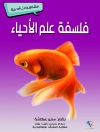Research Ethics for Scientists
A fully updated textbook helping advanced students and young scientists navigate the ethical challenges that are common to scientific researchers in academia
As the number of scientific journals, government regulations, and institutional guidelines continue to grow, research scientists are increasingly facing ethical dilemmas. Even seasoned and honest scientists can unintentionally commit research misconduct or fail to detect and address intentional misbehavior.
Research Ethics for Scientists is an authoritative ‘how-to’ guide that clearly outlines best practices in scientific research. Critically examining the key problems that arise in research management and practice, this real-world handbook helps students and young scientists conduct scientific research that adheres to the highest ethical standards. Accessible chapters, logically organized into functional themes and units, cover all the major areas that are crucial for sustained success in science: ideas, people, data, publications, and funding.
The second edition offers new and updated content throughout, including discussions of recent innovations to detect and adjudicate research misconduct, vulnerabilities in research practices that were exposed by the COVID-19 pandemic, and new methods people are using to cheat the system and skew the peer review process. Entirely new case studies focus on harassment and bullying in training and mentorship, anti-science and pseudoscience, equality and equity issues, the fabrication of data, and more. This edition integrates gender, race, student training, and other important social issues throughout.
* Presents up-to-date coverage of growing issues such as the ethics of rushing to publish
* Discusses the use of text-similarity detecting software to reveal plagiarism and image analysis techniques for detecting data and image manipulation
* Features new material on current trends such as universal open access (OA) publishing, increased research metrics, new models for peer review, working for multiple employers, and ‘shadow labs’ for individual scientists
* Includes access to a companion website with Power Point slides of case studies and figures
Written by an experienced researcher and Ph D mentor, Research Ethics for Scientists: A Companion for Students, Second Edition is an indispensable resource for graduate students, postdoctoral researchers, early-career professors, and scientists involved in teaching scientists-in-training.
Giới thiệu về tác giả
C. Neal Stewart, Jr. is Ivan Racheff Chaired Professor of Plant Molecular Genetics, Department of Plant Sciences, University of Tennessee, USA. He teaches a graduate-level research ethics course that focuses on best practices in research that are portable among different areas of biology, medicine, and agriculture.












